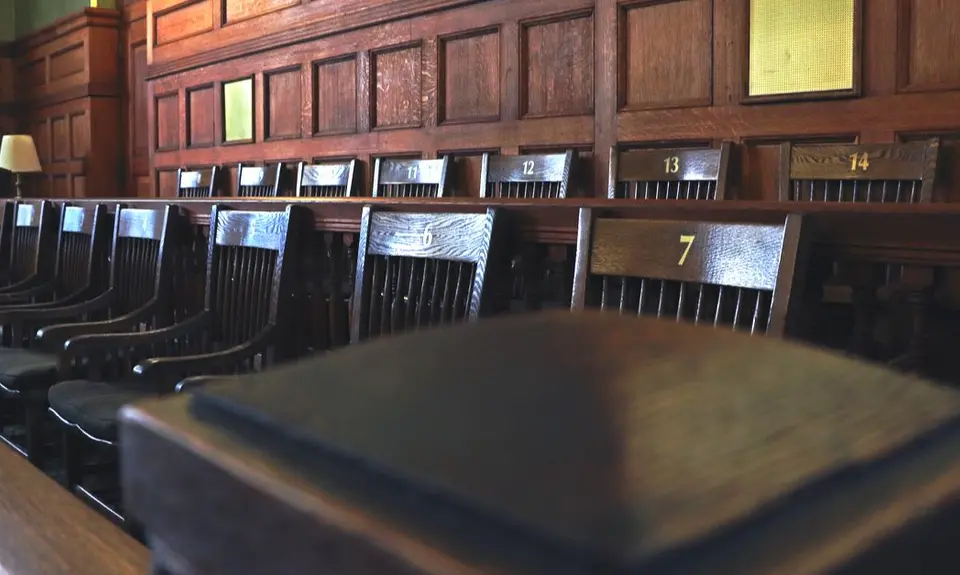“Confirmed Judges, Confirmed Fears” is a blog series documenting the harmful impact of President Trump’s judges on Americans’ rights and liberties. Cases in the series can be found by issue and by judge at this link.
Five of Trump’s Sixth Circuit judges (John Bush, Joan Larsen, John Nalbandian, Eric Murphy, and Chad Readler) provided the deciding votes in a 9-8 ruling rejecting a contention that a prosecutor improperly removed most Black people from a Black man’s jury, even though the prosecutor admitted the reason for his actions and such removal violates the Supreme Court decision in the Batson case. The August 2021 decision was in Taylor v Jordan.
Victor Taylor was the third of three Black men prosecuted by Jefferson County, Kentucky within a few years of each other in the 1980s. In all three cases, prosecutors used peremptory challenges (jury strikes for which no reason is given) to remove almost all Black people from the juries. In the first case, concerning James Batson, the Supreme Court established the landmark rule that prosecutors may not use such challenges to exclude jurors solely because of their race, and made clear that the precedent applies to other cases in which appeals were pending when Batson was decided.
Taylor’s prosecutor admitted (before Batson was decided) that he had struck Black jurors from his trial because of their race, and Taylor was convicted and sentenced to death. The state supreme court dismissed that ground for appeal in one sentence in 1991, and then rejected it again on post-conviction review in 2001, in which it ruled erroneously (as all the judges on the Sixth Circuit later agreed) that to prevail on a Batson claim, a person must affirmatively show circumstances that create an inference that jurors were struck based on their race, as opposed to relying initially on numbers alone to establish that.
Taylor then went to federal court for post-conviction relief. His claim there was also rejected, and the full Sixth Circuit agreed to hear the case.
In a 9-8 decision in which all five participating Trump judges joined, the Sixth Circuit denied Taylor’s jury discrimination claim. The majority rejected the argument that it should consider the state supreme court’s clearly erroneous interpretation of Batson the second time it reviewed the case, ruling that it would instead focus on the state court’s “summary denial” of the jury bias claim in 1991. According to the majority’s interpretation of precedent, such a denial should be upheld if any “fairminded jurist’ could have agreed with any “arguments or theories” that “could have supported” the summary decision, a standard that the majority agreed was “as deferential as it sounds.” The majority accordingly ruled that “fairminded jurists” could disagree as to whether the prosecutor’s decision to strike 75% of the jurors on Taylor’s panel established a Batson claim, especially since the prosecutor had objected to the defense’s effort to strike three Black jurors for cause. The majority claimed that the prosecutor’s admission that he had “no other rational reason” to exclude Black jurors other than race was sufficiently unclear that all fair minded jurists would not be “compelled” to conclude that the remark showed racial discrimination.
Eight judges on the court, including George W Bush nominees Julia Smith Gibbons, Richard Griffin, and Helene White, strongly dissented. Judge Karen Nelson Moore’s lead dissent pointed out that the majority had “not just sounded Taylor’s death knell” but also established dangerous precedent in other cases. This included what she called the majority’s “topsy-turvy travesty” of ignoring the state supreme court’s clear legal error concerning Batson and relying instead on its one-line denial of Taylor’s first appeal using an overly deferential standard, which she and others explained “violates” Supreme Court precedent. Judge Griffin explained in detail why Supreme Court precedent mandated review of the state supreme court’s decision that “impermissibly contradicted Batson.” Judge Cole pointed out that no “fairminded jurist” could conclude that Taylor had failed to raise “an inference of discrimination” even on his first appeal, and that the majority did “not even attempt” to suggest an alternative explanation for the prosecutor’s admission that he had stuck jurors because of their race. And Judge White explained that the majority was flatly wrong in suggesting that Batson requires that there be evidence that a prosecutor “intended to categorically exclude” every Black juror, particularly where, as here, the prosecutor only objected to the defense’s attempt to strike for cause several Black jurors who “expressed particularly favorable views” of capital punishment, which Taylor obviously tried to prevent.
As Judge Moore pointed out, recent cases demonstrate that the “unconstitutional and unconscionable practice” of “systematically striking persons of color from juries persists to this very day.” Nevertheless, she concluded, the majority (including the five Trump judges) “bakes new law from scratch to justify Taylor’s unconstitutional trial and execution” and set dangerous new precedent for people in Kentucky, Michigan, Ohio and Tennessee in the Sixth Circuit. The case is yet another reminder of the importance, as part of our fight for our courts, of confirming fair-minded Biden nominees who will respect constitutional rights.
